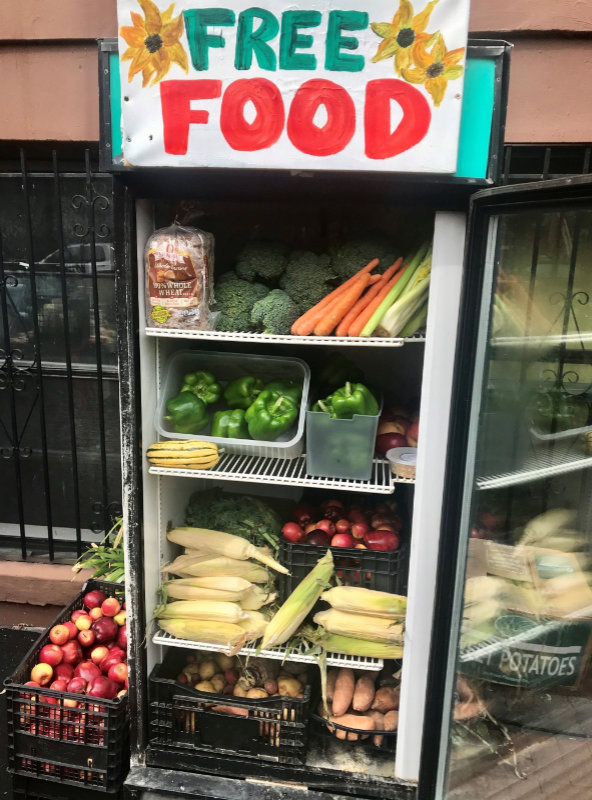How Freedge is feeding communities—and faith—across the U.S.

By Connie Guo
One of the enduring hardships during the COVID-19 pandemic is food insecurity. From soup kitchens to food pantries across America, the surge of need for community support is more evident than ever before. According to the USDA’s latest report on Household Food Insecurity in the United States, more than 35 million people in the United States struggled with hunger in 2019. With the persistence of COVID-19, more than 50 million people may be experiencing food insecurity, according to the 2020 Food Insecurity Projections.
In New York City, where I live, almost 15% of residents were food insecure before the pandemic. Since its spread, the pandemic has spiked up to 25%. In addition, 74% of city food pantries and soup kitchens have reported an increase in the total number of visitors compared to last year, according to Feeding America.
The pandemic has only worsened people’s ability to put food on the table. As these feeding programs are being depleted of resources, community food sharing has become essential.
Freedge is a community-run, food-sharing project aimed at reducing food insecurity and food waste. This initiative builds community bonds by addressing social issues and creating a platform for everyone to contribute. Locations are scattered across the United States and the globe.
It is community-oriented initiatives like Freedge that show faith and grace and bring people together during times of insecurity and darkness. Freedge keeps the community going, fueling the food supply, as well as unconditional support. At the St.Mary’s Church in West Harlem, New York, fridges have served the community through the pandemic. The 24/7 accessibility to free community donated food has been a great alternative to food pantries and soup kitchens. It unites people through the judgement free acts of giving.
Thadeaus Umpster, who hails from Brooklyn, inadvertently started a Freedge in his neighborhood when he found a free fridge on Craigslist, according to a Curbed New York report. He intended to store food donations for a feeding program he runs, but the appliance was too big to fit through the front door. He left it outside and when a delivery for the program showed up with perishables, Umpster plugged the fridge in and taped a note with “Free Food” on it.
“We eat this food too,” he shares. “This is where I get my dinner as well. We’re trying to do something good, and trying to help people out who may need it and might not want to go to a grocery store, too. When people are taking the time to get to know the people in their neighborhoods and communities, we’re stronger and more secure.”
Sade Boyewa, who has lived in Harlem for 25 years, saw Umpster’s fridge on Instagram. She immediately wanted one for her own neighborhood.
“People in my community don’t have what they need,” says Boyewa, who set up a fridge in front of a bodega, near the community garden she started. “They don’t have the benefits, the food. There is already such a disparity. And there is such a surplus of food that goes to waste. Who could stand by and accept this?”
The hope is that more people start community fridges. They are a triple threat, addressing food insecurity, eliminating food waste, and creating a fairer city.
For more information on how to start a Freedge in your community, go to https://freedge.org/.



